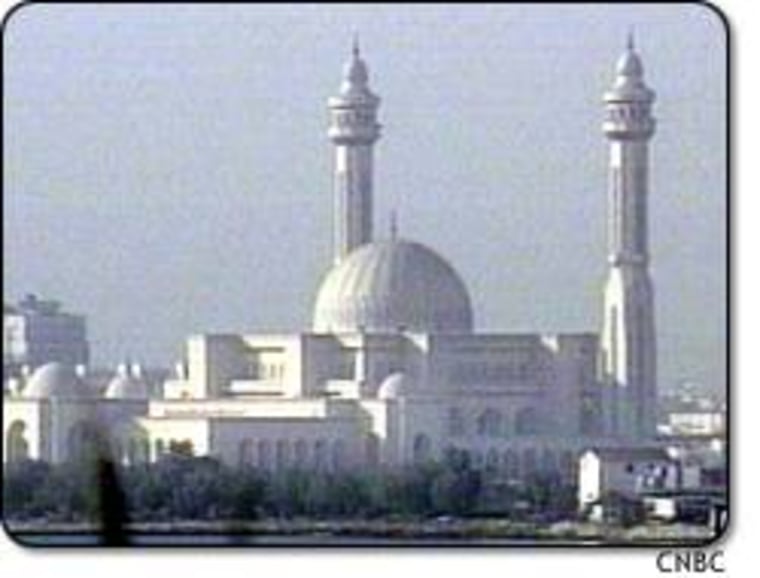For some Americans, coping with the threat of terrorism means working in the hot zone. With the prospect of another war with Iraq, U.S. expatriates are having to take extra precautions. Iraqi Scud missiles could hit any number of U.S. bases, including Bahrain, a small island kingdom east of Saudi Arabia and the home of the U.S. 5th fleet. CNBC recently spent an evening with several Americans living and working in the country
In a region on edge, Bahrain feels a lot more like Boston than Baghdad. It was here that one of the Gulf’s first oil wells was drilled. And for 70 years, perhaps no Gulf nation has had a closer relationship with the United States.
Depaul University runs an MBA program here in the capital of Manama. And driving through the suburbs, you’d be forgiven for thinking you were in Phoenix or Tucson. But today, opposition to American foreign policy is growing.
Bahrain is home to the U.S. 5th fleet. It is also plays host to a large number of American expatriates.
“This is our home,” said Cherry Jones, an American living in Bahrain. “I don’t want to see war any more than anyone else.”
Jones is one of several Americans who gathered to talk to CNBC about living within a Scud-missile’s range of Iraq. Should war come to the Gulf, few of them doubt Saddam Hussein would lob missiles at the neighbors who’ve played host to the Americans.
“If he does, he does,” said Jones. “I have a lot of faith in the U.S. military here. And I have a great deal of faith in Bahrain. They are not going to let someone tear their country apart and the 5th fleet is going to do everything in its power to protect the interests here and the interests in Bahrain”
Despite the street protests, and restlessness in the region, these Americans say they have never been intimidated or feared for their own safety.
“The people of Bahrain object to our foreign policy, but they’ve never objected to us personally,” said Jay Gilbo, the vice principal of the American school here. Some 60 percent of his students are of Arab decent. The day after 9/11, his was the only U.S. Defense Department school overseas that stayed open.
Keeping the school open sent a message, he said. “We’re not going to be deterred from our every day style of living,” he said. “We’ve got an educational process that needs to continue.”
Indeed, Jay’s wife, Anna Carolyn Gilbo, says that despite the proximity to Baghdad, she’s not worried about being targeted by a terrorist target, or for that matter an Iraqi missile.
“It’s close, but then if I was in the United States, I could have been in New York or Washington,” she said. “Or I could slip in the bathtub.”
Americans here note that having the U.S. 5th Fleet surrounding the island of Bahrain provides them with a strong sense security. It also conveys a sense of adventure — living on a desert oasis in a troubled neighborhood.
